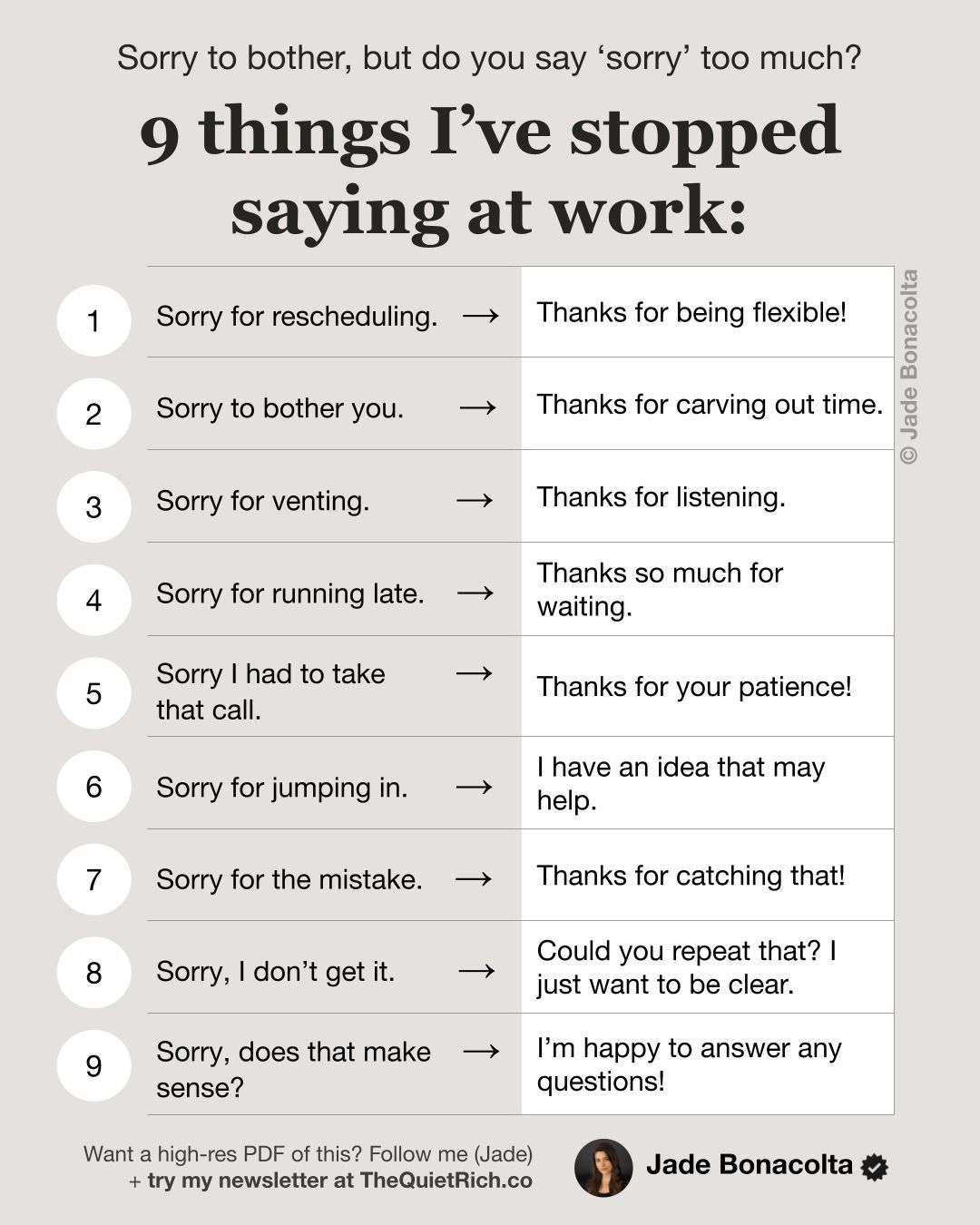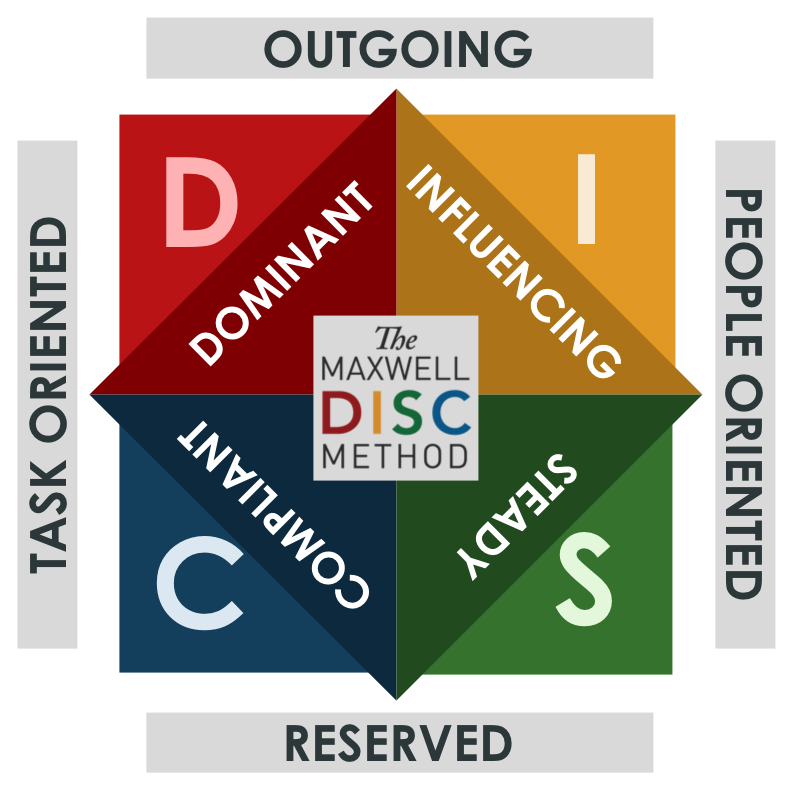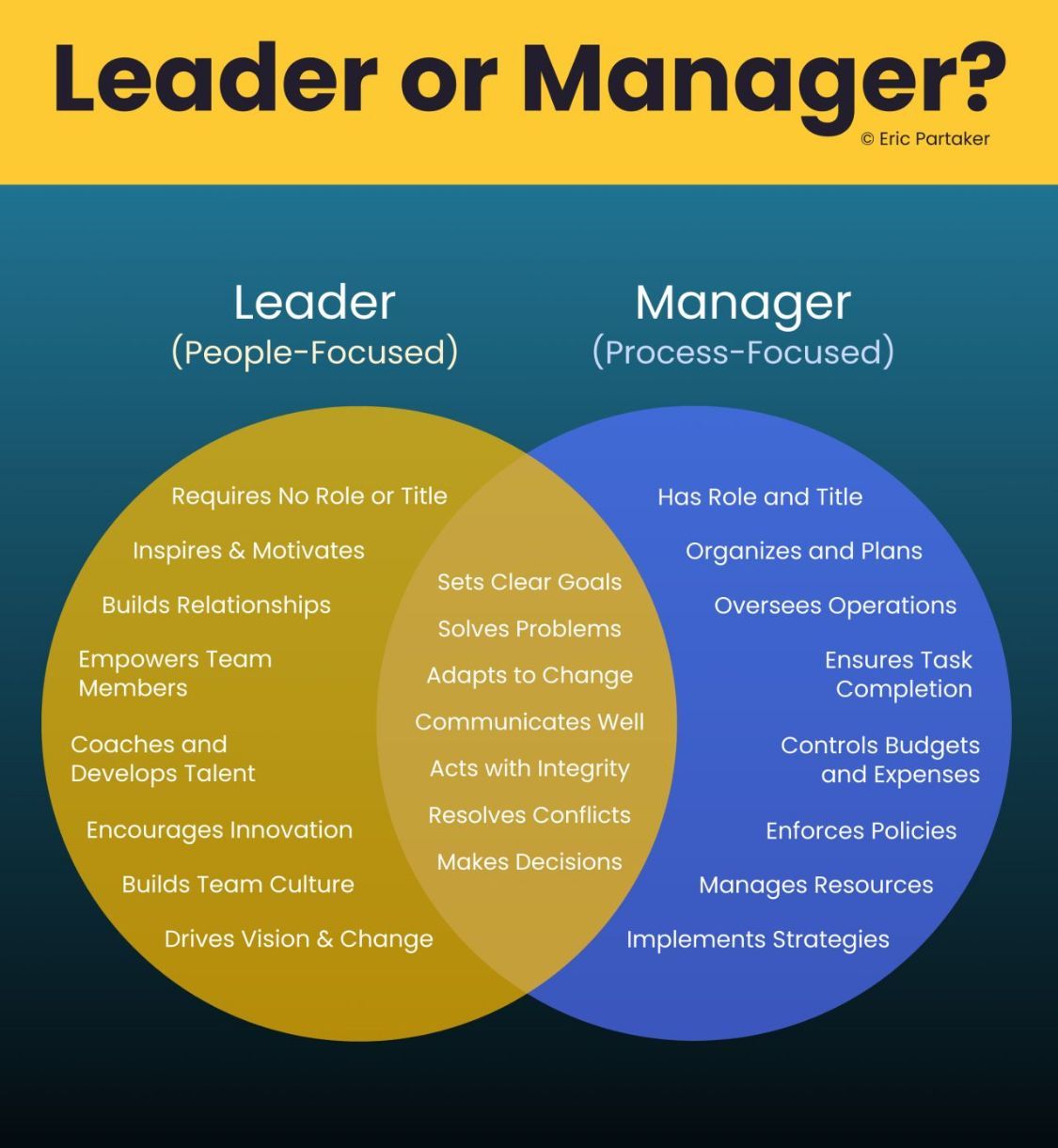Share This Post
Unapologetically Confident: 9 Alternatives to Apologizing at Work

Have you noticed that people say sorry all the time? Even when there's no need for an apology? Our words shape our reality. The more we apologize (unnecessarily), the less confident we subconsciously become. And that's something we can feel, and that others can see.
But what can we do to change this behavior? How can we reframe our language to be more confident and positive? Here are 9 things to stop saying at work, with a handy alternative statement for each:
1. Sorry to bother you. → Thanks for carving out time.
2. Sorry for running late. → Thanks so much for waiting.
3. Sorry for venting. → Thanks for listening.
4. Sorry for rescheduling. → Thanks for being flexible!
5. Sorry for jumping in. → I have an idea that may help.
6. Sorry for the mistake. → Thank for catching that!
7. Sorry, I don’t get it. → Could you repeat that? I just want to be clear.
8. Sorry I had to take that call. → Thanks for your patience!
9. Sorry, does that make sense? → I’m happy to answer any questions!
These 9 reframes are powerful and can help us change our language to be more positive and less apologetic. But how do we make them a habit? First, it's about becoming aware. Ask those around you to stop you when you apologize unnecessarily, with “Why did you say sorry?”
Then 'play it again'... but this time with a “thank you for…” And do you know the best part? The gratitude you demonstrate sets the tone for the rest of the discussion.
By reframing our language in this way, we can become more confident and positive in our communication. It may take some practice, but it's worth it to create a more confident and positive workplace environment. So let's start saying thank you instead of sorry!



